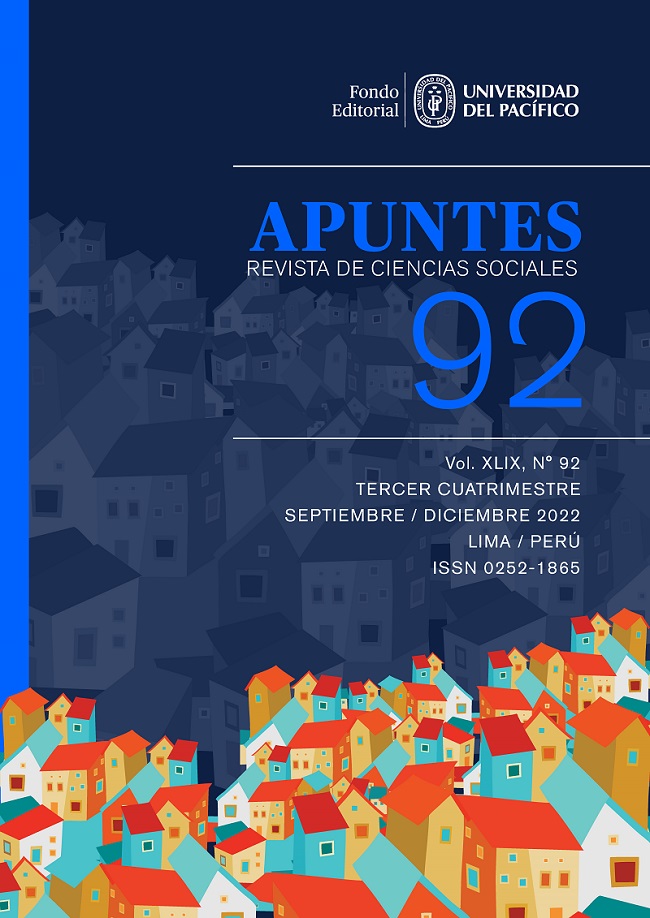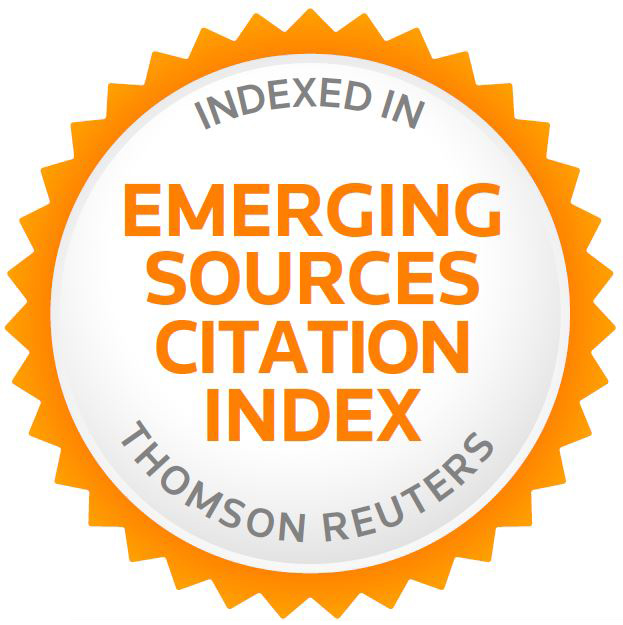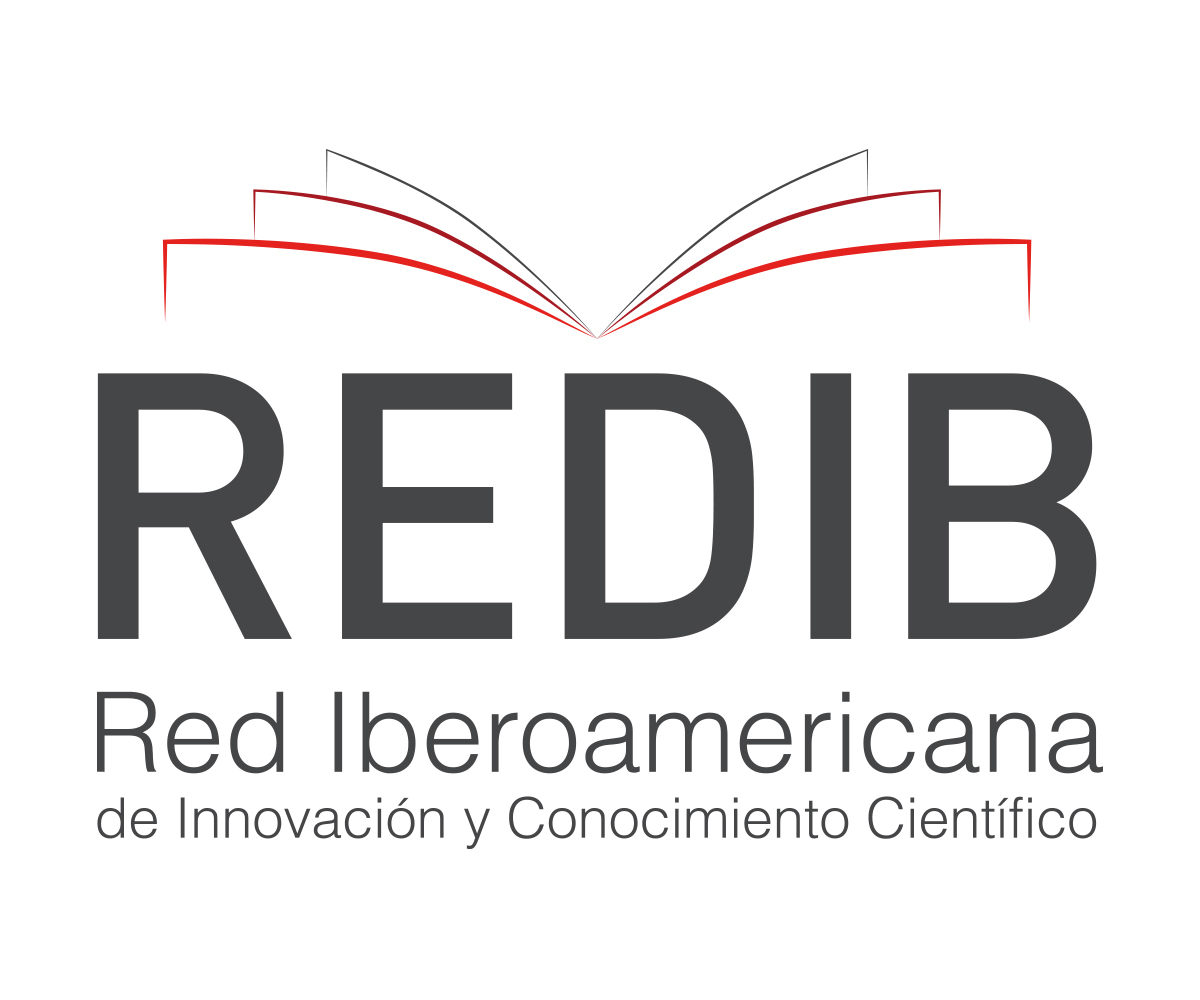La educación virtual durante la pandemia desde la perspectiva de los profesores peruanos de secundaria en escuelas rurales
Resumen
Debido a la pandemia por COVID-19, todo el sistema educativo migró a la modalidad virtual, lo que trajo consigo retos sociales, tecnológicos, psicológicos, etc. En este contexto, las escuelas rurales, que presentaban diversas carencias desde antes de la pandemia, se convirtieron en un escenario donde la labor de enseñanza y, consecuentemente, el aprendizaje de los estudiantes se vieron perjudicados en diversos aspectos. Por lo anterior, la presente investigación buscó recoger las experiencias de los profesores de secundaria sobre la educación virtual que se implementó en las zonas rurales del Perú por la pandemia de COVID-19. La metodología fue cualitativa y fenomenológica, y se realizaron entrevistas a 23 profesores. El impacto inicial del cierre de las escuelas cambió drásticamente la dinámica educativa, y llevó a una gran incertidumbre; como respuesta, los profesores salieron en busca de sus alumnos, a pesar de las dificultades geográficas y tecnológicas. Asimismo, la brecha digital se hizo más evidente, no percibieron ayuda de algunas autoridades, el apoyo familiar fue diverso y se redujeron los programas educativos, lo que afectó las oportunidades de aprendizaje. Todo indicaría que las brechas educativas, sociales y tecnológicas preexistentes en la zona rural se agravaron, y se espera que las nuevas políticas públicas atiendan esta problemática lo antes posible.Referencias
Akinbadewa, B., & Sofowora, O. (2020). The effectiveness of multimedia instructional learning packages in enhancing secondary school students’ attitudes toward Biology. International Journal on Studies in Education, 2(2), 119-133. https://doi.org/10.46328/ijonse.19
Alharthi, M. (2020). Students’ attitudes toward the use of technology in online courses. International Journal of Technology in Education, 3(1), 14-23. https://doi.org/10.46328/ijte.v3i1.18
Amelia, R., Kadarisma, G., Fitriani, N., & Ahmadi, Y. (2020). The effect of online mathematics learning on junior high school mathematic resilience during COVID-19 pandemic. Journal of Physics: Conference Series, 1657. https://doi.org/10.1088/1742-6596/1657/1/012011
Ariyanti, G., & Iman, F. (2020). The effects of online mathematics learning in the COVID-19 pandemic period: A case study of senior high school students at Madiun City, Indonesia. Mathematics Teaching Research Journal, 12(3), 4-11. https://commons.hostos.cuny.edu/mtrj/wp-content/uploads/sites/30/2020/10/v12n3-The-Effects-of-Online-Mathematics-Learning.pdf
Avanesian, G., Mizunoya, S., & Amaro, D. (2021). How many students could continue learning during COVID-19-caused school closures? Introducing a new reachability indicator for measuring equity of remote learning. International Journal of Educational Development, 84. https://doi.org/10.1016/j.ijedudev.2021.102421
Azevedo, J., Hasan, A., Goldemberg, D., Geven, K., & Iqbal, S. (2021). Simulating the potential impacts of COVID-19 school closures on schooling and learning outcomes: A set of global estimates. https://thedocs.worldbank.org/en/doc/798061592482682799-0090022020/original/covidandeducationJune17r6.pdf
Bayrakdar, S., & Guveli, A. (2020). Inequalities in home learning and schools’ provision of distance teaching during school closure of COVID-19 lockdown in the UK. Econstor, 2020-9. https://www.econstor.eu/handle/10419/227790
Bignoux, S., & Sund, K. (2018). Tutoring executives online: What drives perceived quality? Behaviour and Information Technology, 37(7), 703-713. https://doi.org/10.1080/0144929X.2018.1474254
Bol, T. (2020). Inequality in homeschooling during the corona crisis in The Netherlands. First results from the LISS Panel. SocArXiv. https://doi.org/10.31235/osf.io/hf32q
Bourouiba, L. (2020). Turbulent gas clouds and respiratory pathogen emissions: Potential implications for reducing transmission of COVID-19. JAMA, 323(18), 1837-1838. https://doi.org/10.1001/jama.2020.4756
Bray, A., Banks, J., Devitt, A., & Chorcora, E. (2021). Connection before content: Using multiple perspectives to examine student engagement during COVID-19 school closures in Ireland. Irish Educational Studies, 40(2), 431-441. https://doi.org/10.1080/03323315.2021.1917444
Brooks, S., Smith, L., Webster, R., Weston, D., Woodland, L., Hall, I., & Rubin, G. (2020). The impact of unplanned school closure on children's social contact: Rapid evidence review. Eurosurveillance, 25(13). https://doi.org/10.2807/1560-7917.ES.2020.25.13.2000188
Butnaru, G., Niță, V., Anichiti, A., & Brînză, G. (2021). The effectiveness of online education during COVID-19 pandemic—A comparative analysis between the perceptions of academic students and high school students from Romania. Sustainability, 13(9). https://doi.org/10.3390/su13095311
Capelle, F., Chopra, V., Ackers, J., & Gochyyev, P. (2021). An analysis of the reach and effectiveness of distance learning in India during school closures due to COVID-19. International Journal of Educational Development, 85. https://doi.org/10.1016/j.ijedudev.2021.102439
Code, J., Ralph, R., & Forde, K. (2020). Pandemic designs for the future: Perspectives of technology education teachers during COVID-19. Information and Learning Sciences, 121(6), 419-431. https://doi.org/10.1108/ILS-04-2020-0112
Colville, T., Hulme, S., Kerr, C., Mercieca, D., & Mercieca, D. (2021). Teaching and learning in COVID-19 lockdown in Scotland: Teachers’ engaged pedagogy. Front. Psychol, 12. https://doi.org/10.3389/fpsyg.2021.733633
Dietrich, H., Patzina, A., & Lerche, A. (2021). Social inequality in the homeschooling efforts of German high school students during a school closing period. European Societies, 23. https://doi.org/10.1080/14616696.2020.1826556
Engzell, P., Frey, A., & Verhagen, M. (2021). Learning loss due to school closures during the COVID-19 pandemic. Proceedings of the National Academy of Sciences of the United States of America, 118(17). https://doi.org/10.1073/pnas.2022376118
Fiorillo, A., & Gorwood, P. (2020). The consequences of the COVID-19 pandemic on mental health and implications for clinical practice. European Psychiatry, 63(1). https://doi.org/10.1192/j.eurpsy.2020.35
Fukumoto, K., McClean, C., & Nakagawa, K. (2021). No causal effect of school closures in Japan on the spread of COVID-19 in spring 2020. Nature Medicine, 27, 2111-2119. https://doi.org/10.1038/s41591-021-01571-8
Gazmararian, J., Weingart, R., Campbell, K., Cronin, T., & Ashta, J. (2021). Impact of COVID-19 pandemic on the mental health of students from 2 semi-rural high schools in Georgia. Journal of School Health, 91(5), 356-369. https://doi.org/10.1111/josh.13007
Grewenig, E., Lergetporer, P., Werner, K., Woessmann, L., & Zierow, L. (2021). COVID-19 and educational inequality: How school closures affect low- and high-achieving students. European Economic Review, 140. https://doi.org/10.1016/j.euroecorev.2021.103920
Gudmundsdottir, G., & Hathaway, D. (2020). «We always make it work»: Teachers’ agency in the time of crisis. Journal of Technology and Teacher Education, 28(2), 239-250. https://www.learntechlib.org/primary/p/216242/
Harrison, T., & Lee, H. (2018). iPads in the mathematics classroom: Developing criteria for selecting appropriate learning apps. International Journal of Education in Mathematics, Science and Technology, 6(2), 155-172. https://files.eric.ed.gov/fulltext/EJ1178352.pdf
Hebebci, M., Bertiz, Y., & Alan, S. (2020). Investigation of views of students and teachers on distance education practices during the Coronavirus (COVID-19) pandemic. International Journal of Technology in Education and Science, 4(4), 267-282. https://doi.org/10.46328/ijtes.v4i4.113
Hermann, M., Gutsfeld, R., Wirzberger, M., & Moeller, K. (2021). Evaluating students’ engagement with an online learning environment during and after COVID-19 related school closures: A survival analysis approach. Trends in Neuroscience and Education, 25. https://doi.org/10.1016/j.tine.2021.100168
Hernández-Sampieri, R., & Mendoza, C. (2018). Metodología de la investigación. Las rutas cuantitativa, cualitativa y mixta. McGraw-Hill Education.
Hou, T., Mao, X., Dong, W., Cai, W., & Deng, G. (2020). Prevalence of and factors associated with mental health problems and suicidality among senior high school students in rural China during the COVID-19 outbreak. Asian Journal of Psychiatry, 54. https://doi.org/10.1016/j.ajp.2020.102305
Kim, S., Lee, S., Han, H., Jung, J., Yang, S., & Shin, Y. (2021). Parental mental health and children’s behaviors and media usage during COVID-19-related school closures. Journal of Korean Medical Science, 36(25). https://doi.org/10.3346/jkms.2021.36.e184
Kuhfeld, M., Soland, J., Tarasawa, B., Johnson, A., Ruzek, E., & Liu, J. (2020). Projecting the potential impact of COVID-19 school closures on academic achievement. Educational Researcher, 49(8), 549-565. https://doi.org/10.3102/0013189X20965918
Lai, J., & Widmar, N. (2020). Revisiting the digital divide in the COVID-19 era. Applied Economic Perspectives and Policy, 43(1), 458-464. https://doi.org/10.1002/aepp.13104
Lazowski, R., & Hulleman, C. (2016). Motivation interventions in education: A meta-analytic review. Review of Educational Research, 86(2), 602-640. https://doi.org/10.3102/0034654315617832
Mælan, E., Gustavsen, A., Stranger-Johannessen, E., & Nordahl, T. (2021). Norwegian students’ experiences of homeschooling during the COVID-19 pandemic. European Journal of Special Needs Education, 36(1). https://doi.org/10.1080/08856257.2021.1872843
Mohan, G., Carroll, E., McCoy, S., Domhnaill, C., & Mihut, G. (2021). Magnifying inequality? Home learning environments and social reproduction during school closures in Ireland. Irish Educational Studies, 40(2). https://doi.org/10.1080/03323315.2021.1915841
Mueller, J., McConnell, K., Burow, P., Pofahl, K., Merdjanoff, A., & Farrell, J. (2021). Impacts of the COVID-19 pandemic on rural America. PNAS, 118(1). https://doi.org/10.1073/pnas.2019378118
Muthuprasad, T., Aiswarya, S., Aditya, K., & Jha, G. (2021). Students’ perception and preference for online education in India during COVID-19 pandemic. Social Sciences & Humanities Open, 3(1). https://doi.org/10.1016/j.ssaho.2020.100101
Nguyen, T. (2015). The effectiveness of online learning: Beyond no significant difference and future horizons. Journal of Online Learning and Teaching, 11(2), 309-319. http://jolt.merlot.org/Vol11no2/Nguyen_0615.pdf
Novios, A., & Childs, J. (2021). «We need to do better by kids»: Changing routines in U.S. schools in response to COVID-19 school closures. Journal of Education for Students Placed at Risk, 26(2), 135-156. https://doi.org/10.1080/10824669.2021.1906251
Palmer, J., De Klerk, E., & Modise, M. (2021). Re-prioritizing teachers’ social emotional learning in rural schools beyond COVID-19. Journal of Ethnic and Cultural Studies, 8(2), 68-88. http://dx.doi.org/10.29333/ejecs/563
Parolin, Z., & Lee, E. (2021). Large socio-economic, geographic and demographic disparities exist in exposure to school closures. Nature Human Behaviour, 5, 522-528. https://doi.org/10.1038/s41562-021-01087-8
Pozas, M., Letzel, V., & Schneider, C. (2021). «Homeschooling in times of corona»: Exploring Mexican and German primary school students’ and parents’ chances and challenges during homeschooling. European Journal of Special Needs Education, 36(1). https://doi.org/10.1080/08856257.2021.1874152
Primdahl, N., Borsch, A., Verelst, A., Jervelund, S., Derluyn, I., & Skovdal, M. (2021). «It’s difficult to help when I am not sitting next to them»: How COVID-19 school closures interrupted teachers’ care for newly arrived migrant and refugee learners in Denmark. Vulnerable Children and Youth Studies, 16(1), 75-85. https://doi.org/10.1080/17450128.2020.1829228
Rashid, R., Nadeem, M., Shakir, M., Bhatti, A., & Abbas, G. (2021). A comparative analysis of the effectiveness of various aspects of school administration at secondary level. Elementary Education Online, 20(3), 2096-2103. https://www.bibliomed.org/mnsfulltext/218/218-1619159555.pdf?1643645704
Sabates, R., Carter, E., & Stern, J. (2021). Using educational transitions to estimate learning loss due to COVID-19 school closures: The case of complementary basic education in Ghana. International Journal of Educational Development, 82. https://doi.org/10.1016/j.ijedudev.2021.102377
Scully, D., Lehane, P., & Scully, C. (2021). «It is no longer scary»: Digital learning before and during the COVID-19 pandemic in Irish secondary schools. Technology, Pedagogy and Education, 30(1), 159-181. https://doi.org/10.1080/1475939X.2020.1854844
Selvaraj, A., Vishnu, R., Ka, N., Benson, N., & Mathew, A. (2021). Effect of pandemic based online education on teaching and learning system. International Journal of Educational Development, 85. https://doi.org/10.1016/j.ijedudev.2021.102444
Starkey, L., Shonfeld, M., Prestridge, S., & Cervera, M. (2021). Special issue: COVID-19 and the role of technology and pedagogy on school education during a pandemic. Technology, Pedagogy and Education, 30(1), 1-5. https://doi.org/10.1080/1475939X.2021.1866838
Tomasik, M., Helbling, L., & Moser, U. (2021). Educational gains of in-person vs. distance learning in primary and secondary schools: A natural experiment during the COVID-19 pandemic school closures in Switzerland. International Journal of Psychology, 56(4), 566-576. https://doi.org/10.1002/ijop.12728
Tsai, S., Smith, M., & Hauser, R. (2017). Families, schools, and student achievement inequality: A multilevel Mimic model approach. Sociology of Education, 90(1), 64-88. https://doi.org/10.1177/0038040716683779
Vaillancourt, T., McDougall, P., Comeau, J., & Finn, C. (2021). COVID-19 school closures and social isolation in children and youth: prioritizing relationships in education. Facets, 6, 1795-1813. https://doi.org/10.1139/facets-2021-0080
Viner, R., Bonell, C., Drake, L., Jourdan, D., Davies, N., Baltag, V., Jerrim, J., Proimos, J., & Darzi, A. (2021). Reopening schools during the COVID-19 pandemic: Governments must balance the uncertainty and risks of reopening schools against the clear harms associated with prolonged closure. Archives of Disease in Childhood, 106, 111-113. http://dx.doi.org/10.1136/archdischild-2020-319963
Viner, R., Russell, S., Croker, H., Packer, J., Ward, J., Stansfield, C., Mytton, O., Bonell, C., & Booy, R. (2020). School closure and management practices during coronavirus outbreaks including COVID-19: A rapid systematic review. The Lancet. Child & Adolescent Health, 4(5), 397-404. https://doi.org/10.1016/S2352-4642(20)30095-X
Vlachos, J., Hertegård, E., & Svaleryd, H. (2021). The effects of school closures on SARS-CoV-2 among parents and teachers. Proceedings of the National Academy of Sciences, 118(9). https://doi.org/10.1073/pnas.2020834118
Weinhandl, R., Lavicza, Z., Hohenwarter, M., & Schallert, S. (2020). Enhancing flipped mathematics education by utilising GeoGebra. International Journal of Education in Mathematics, Science and Technology, 8(1), 1-15. https://doi.org/10.46328/ijemst.v8i1.832
Werfhorst, H. (2021). Inequality in learning is a major concern after school closures. PNAS, 118(20). https://doi.org/10.1073/pnas.2105243118

Esta obra está bajo licencia internacional Creative Commons Reconocimiento 4.0.
Apuntes, revista de Ciencia Sociales publica todos sus artículos y reseñas bajo la licencia Creative Commons Attribution (CC BY 4.0) con el objetivo de fomentar el intercambio académico a nivel mundial. Por ello, la obra en cuestión puede ser distribuida, remezclada, retocada, etc., como el autor y los lectores de la misma lo estimen conveniente. La única condición es que se cite a la revista Apuntes, revista de Ciencias Sociales como entidad editora del texto.








.jpg)



